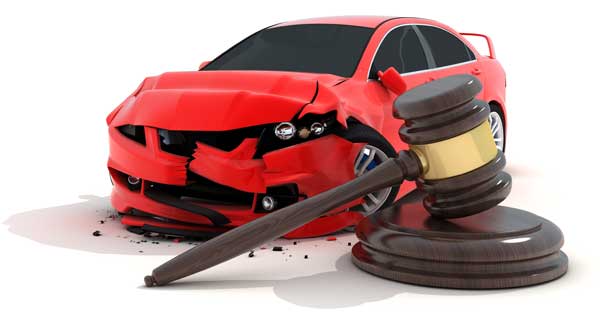Our Car Accident Attorney Explains What To Do After A Car Wreck
If you or a loved one has been in a recent car wreck, it’s important you take steps to protect your rights. At some point in our lives, the majority of us will experience involvement in a car accident. Most of the time, a car accident is nothing more than a simple fender bender that causes minor property damage. In other incidents, wrecks can be traumatic and devastating events, leaving permanent scars on the lives of the passengers and drivers involved.
Regardless of if your accident was a simple fender bender or one more serious, you are most likely entitled to seek compensation for the physical, emotional, and financial injuries you suffered as a result of that crash. How much money you are entitled to and the degree of difficulty to collect it depends on the highly individualized circumstances of your accident. In a few instances, you may be able to protect your rights on your own, but generally, hiring an attorney is the only way to recover the full amount that your case is worth. Our auto accident attorneys will highlight some of the basics of car accident litigation in Texas.
Do You Have A Claim?
Nearly every one of us will get into a car accident during our lives. So how can you know if you have a successful case against someone to reimburse you for injuries? In most cases, an accident victim is only entitled to collect compensation for his injuries if he can prove in court the four elements of a car accident claim. Until you demonstrate that the law and facts reveal the defendant is required to pay you money, the defendant in your case will be presumed “innocent.”
The four elements in a car accident claim you must prove in order to recover for your accident injuries are duty, breach, causation, and damages. We’ll discuss each of these four elements in detail below, so you will know the precise requirements to prove you’re entitled to compensation.
Duty:
The initial requirement for a successful car accident case is to prove the defendant owed you a duty of care in exercising a certain standard of caution to make sure you would not sustain an injury. The law sets this level of duty of care that one person owes another, and it depends on the circumstances of the situation and the relationship between the involved parties. Proving the defendant owed you a minimal duty of care will most likely be straightforward because almost all drivers owe each other the duty to operate their car as a reasonable person would to keep others safe. This “reasonable person standard” will probably be applied to the defendant in your case.
Breach:
After you show the defendant owed you a duty of care, you’ll need to reveal how he breached that duty of care. Usually, this requires demonstrating the defendant drove in a way a reasonable person would not have driven. Your defendant can be held responsible for any consequences that resulted from his negligent actions if even for just a moment, he drove unreasonably. Proving the defendant breached his duty of care often requires you to bring to court evidence to precisely demonstrate what the defendant did or failed to do. The jury in your case will consider your evidence and the evidence of the rest of the circumstances around the defendant’s actions to decide if the defendant’s behavior was indeed unreasonable. Actions such as driving while intoxicated, driving at nights without headlights on, speeding recklessly, or running through red lights, can all constitute a breach of the defendant’s duty of care.
Causation:
You’ll have shown the defendant in your case was negligent, once you’ve proven the elements of duty and breach. However, showing negligence is not enough to hold the defendant responsible for your injuries unless you also show the defendant’s negligence caused the wreck. Often there are several parties who could potentially be at fault in a car accident – pedestrians, other drivers, and even you could be framed as potential suspects by the defendant. Your defendant will probably do everything he can to avoid liability. He’ll try to convince the jurors that a third party caused the wreck, your injuries existed before the accident, or you caused the accident yourself. So it’s crucial you have sufficient evidence to prove it was the defendant’s conduct that caused you harm.
Damages:
Finally, after having proven the defendant’s liability, you’ll need to show how much in damages you are entitled to collect from the defendant. The term “damages” does not refer to your injuries. It refers to the monetary value of your injuries or the amount of money you will recover if you prevail in the case. You’ll need to determine exactly what you’re owed and give evidence of your injuries and losses to support those calculations, in order to prove what you’re entitled to collect. Losses such as loss of earning capacity, lost salary, medical bills, repair bills, and pain and suffering can all be recovered as damages.
As you’re calculating how much you think you’re owed in damages, your defendant will also be performing the same task. In a car wreck case, the amount of damages is usually a contested issue. If the jury finds the defendant was liable for the wreck, defendants calculate how much they think they owe accident victims. Defendants often allege they owe you much less than your calculations, and that you are unfairly asking for more than the real value of your injuries. So to show the jury the calculated amount is fair, and the defendant is simply making a last-ditch effort to avoid his negligence, you must have available evidence of your losses to substantiate your figures.
It’ important to figure the full amount of damages because you only have one attempt to demand all you are entitled to. Yet, unless you’re experienced, accounting for all these losses can be difficult. For instance, how do you calculate an amount for an intangible loss such as pain and suffering? When figuring lost earning capacity, how do you allow for possible raises and promotions you would have earned if still working? If your medical treatment is continuing, how do you summarize your medical bills? The car accident attorneys at our Law Office understand how to make all these calculations and determinations so you can recover the full amount possible.
This blog was posted by Ford and Laurel Attorneys Laredo, Texas


